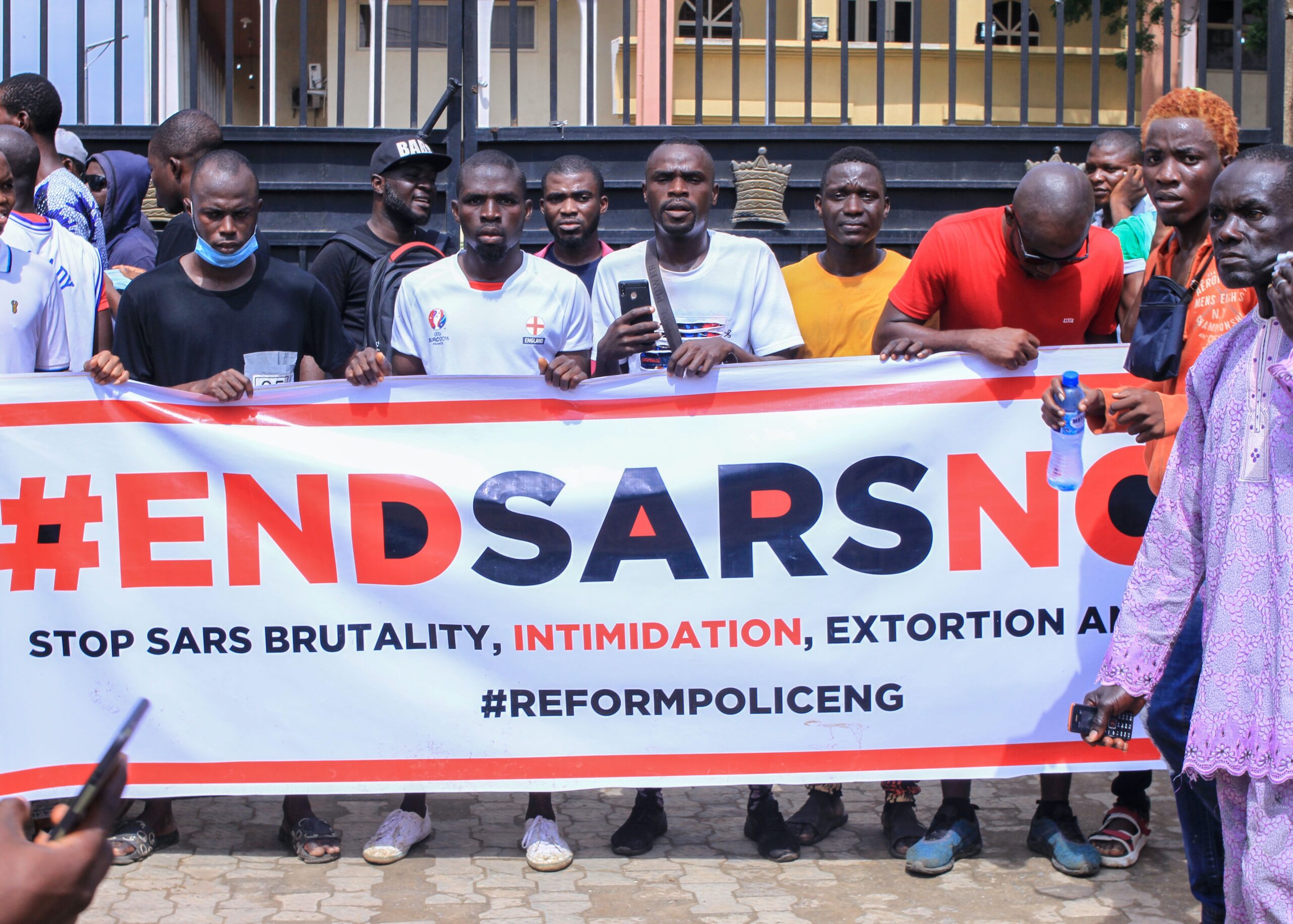By Tamilore Ogunyemi, BA Politics and Economics
In an uncanny resemblance to the protests that resulted in the declaration of Nigerian independence exactly 60 years ago, Nigerians have raised their voices once again to unite in a fight for our future. Protests have sprung up across the country and amongst Nigerian diaspora communities calling for the end of the Federal Special Anti-Robbery Squad (SARS). After a turbulent year of political, economic and social unrest, we Nigerians are demanding change.
Created to suppress violent crime, SARS was founded in 1984 by former Police Commissioner Fulani Kwajafa. According to the BBC Hausa Service, Kwajafa now ‘feels guilty’ for founding SARS, which today has become the face of all the problems in Nigeria’s police.
SARS operated with complete impunity to harass and terrorise Nigerians. #EndSARS was first used in 2017, and the recent resurgence was sparked by a video capturing SARS officers shooting and allegedly killing a seemingly unconscious man. SARS were notorious for their flagrant abuse of power and human rights violations. They acted in the same manner as the criminals they were supposed to arrest, and they terrorised those that they are supposed to protect. Amnesty International reported at least 82 cases of ‘torture, ill treatment and extra judicial executions’ at the hands of SARS between 2017 and 2020. They brutalized and targeted young Nigerians – usually men aged 18 to 35 from vulnerable and lower income backgrounds – who they accused of fraud and robbery on the basis of appearing well-dressed or having a smartphone or a car. The ignorance embedded in such profiling patterns highlights dangerous internalised assumptions that Nigerians can only afford luxuries through illegal and illicit activities.
#EndSARS is a call to end police brutality and police corruption in Nigeria. Solidarity with the youth-led movement has sparked peaceful protests across the globe. Engagement from the diaspora community and celebrities including Wizkid, Davido, John Boyega and Big Sean have helped to raise the profile of the movement. Regrettably, protests in Nigeria against police brutality have been subject to scenes of more police brutality where protesters have been met with live ammunition, teargas, and water cannons all at the hands of the police. Amnesty International has reported at least 56 deaths in Nigeria as of October 21 2020.
The problems within the Nigerian police force have not gone entirely unacknowledged by the country’s leaders. The Nigerian government spent the last 5 years suggesting its intent to disband SARS, but finally on 11 October Inspector General of Police, Mohammad Adamu, announced the dissolvement of the unit. Whether this will be a real victory for Nigerians remains to be seen as SARS officers will be redeployed to other police units and the role of SARS will be taken over by Special Weapons and Tactics (SWAT) team. Protestors brought forward a five-point demand in response to this which included justice for victims of police brutality and compensation for their families, and psychological evaluation and retraining for redeployed SARS officers.
Nigerians are not alone in the struggle against police brutality. Whether in the fight for climate action or the Black Lives Matter movement, #EndSARS is part of a greater youth-lead global struggle for our future. The #EndSARS movement is a clear sign that we, the youth of Nigeria and the diaspora, want lasting change. Celebrating 60 years of Nigerian independence has been bitter-sweet as we reflect on a tumultuous history and a challenging present, but with high hopes for our future – a future that begins with #EndSARS.
Photo Credit: Tobi Oshinnaike, Unsplash.
